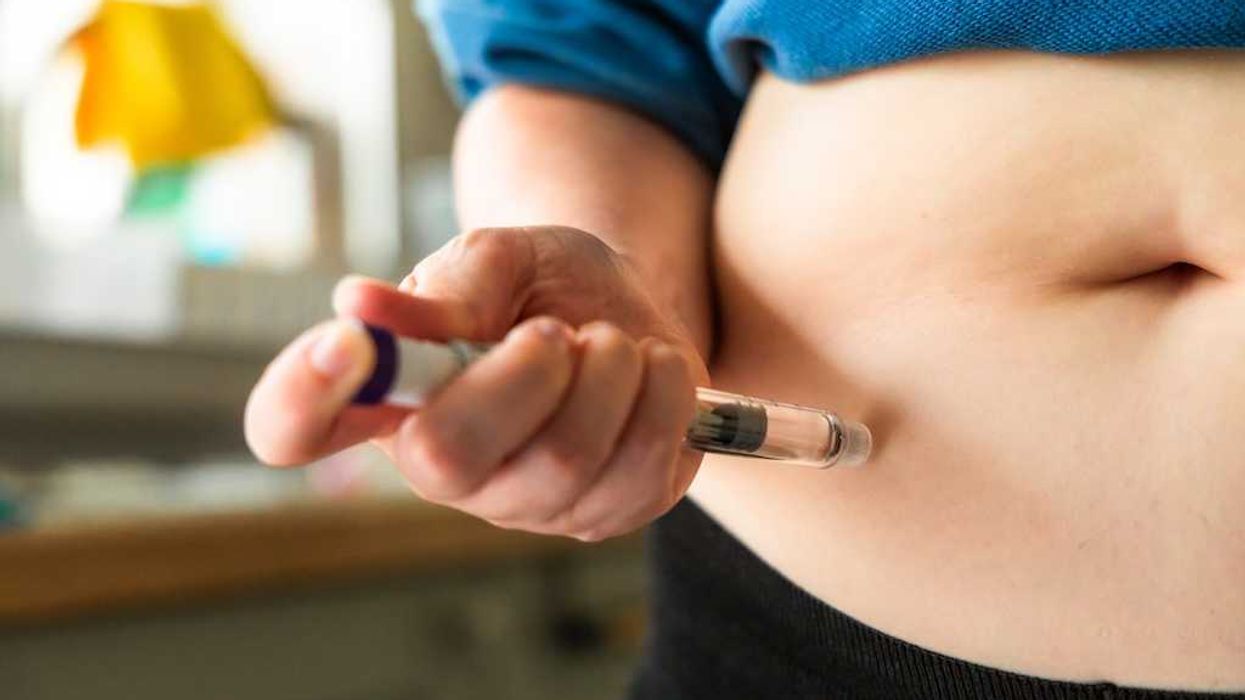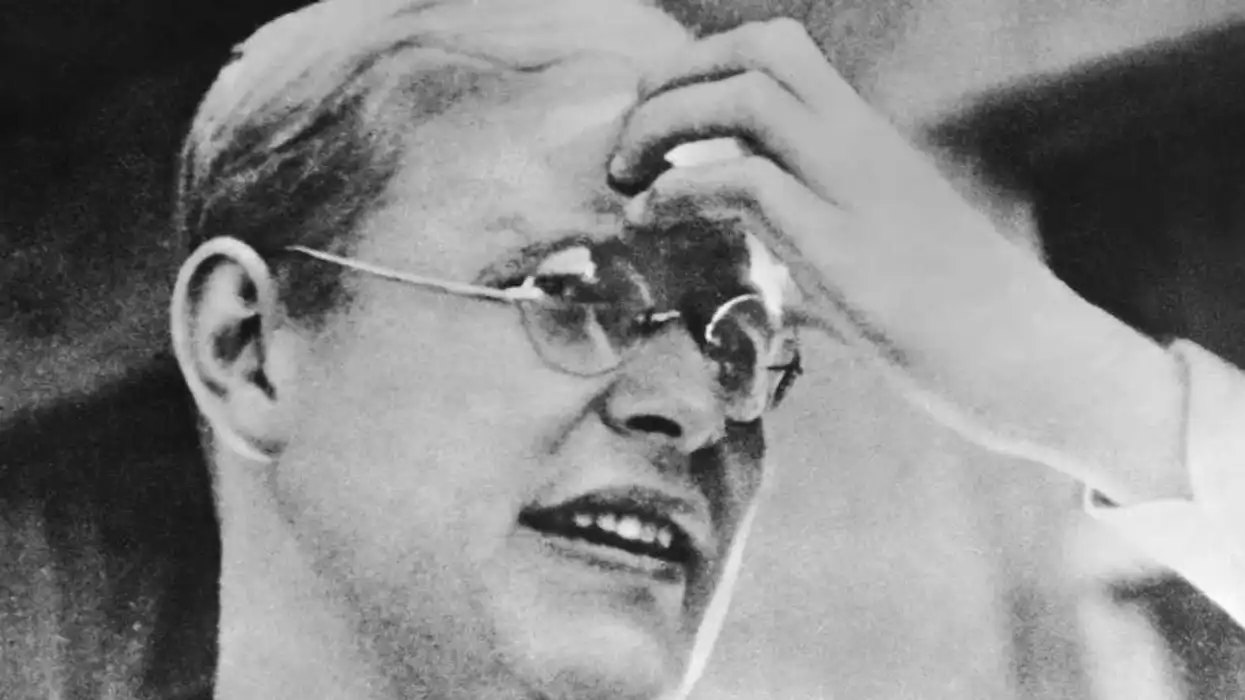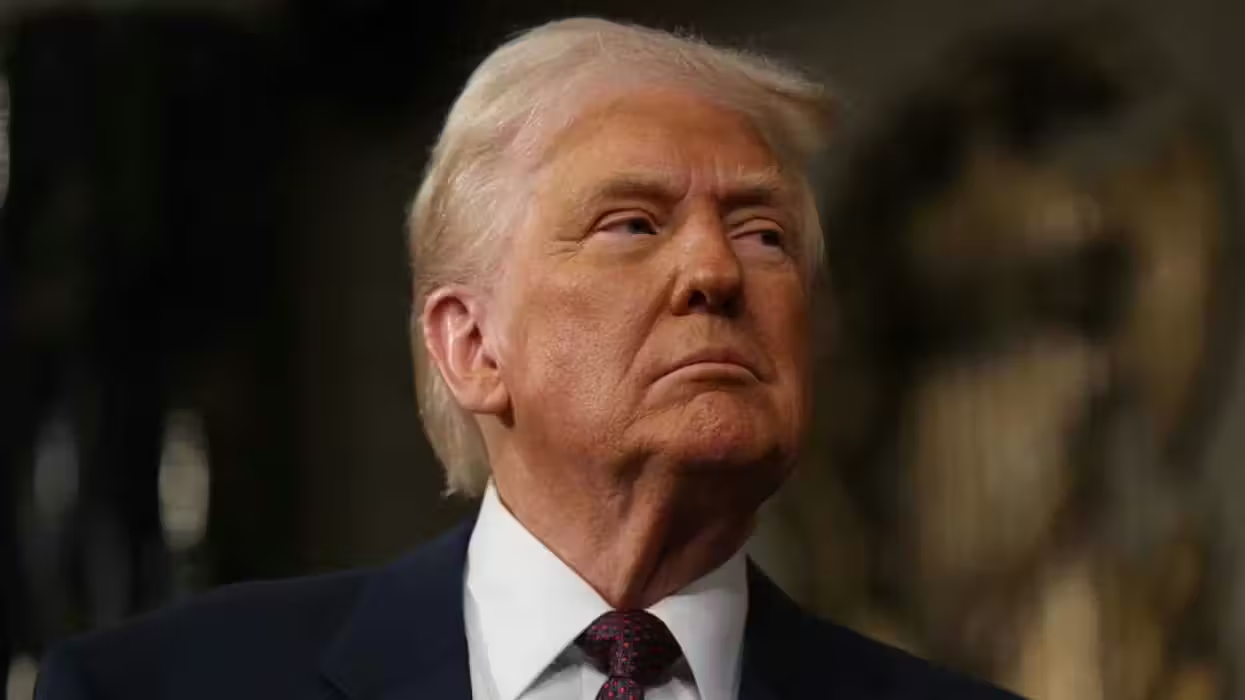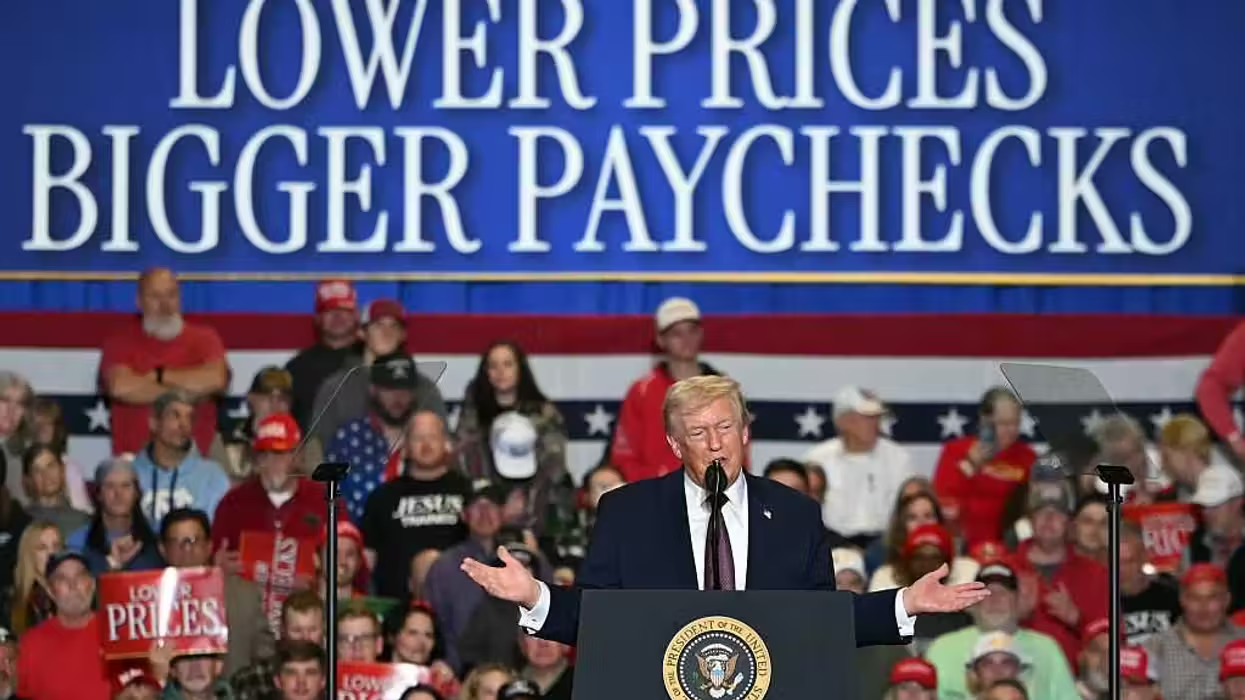WASHINGTON (TheBlaze/AP) -- A unanimous Supreme Court ruled Wednesday police may not generally search the cellphones of people they arrest without first getting search warrants.
The justices said cellphones are powerful devices unlike anything else police may find on someone they arrest.
"The fact that an arrestee has diminished privacy interests does not mean that the Fourth Amendment falls out of the picture entirely," Chief Justice John Roberts wrote in the opinion of the court.
"Modern cellphones, as a category, implicate privacy concerns far beyond those implicated by the search of a cigarette pack, a wallet or a purse. A conclusion that inspecting the contents of an arrestee’s pockets works no substantial additional intrusion on privacy beyond the arrest itself may make sense as applied to physical items, but any extension of that reasoning to digital data has to rest on its own bottom," Roberts wrote later in the opinion.
 A Supreme Court visitor takes pictures with her cellphone in Washington on April 29, 2014, during a hearing where it considered whether police may search cellphones found on people they arrest without first getting a warrant. On June 25, the high court decided that police should obtain warrants before searching cellphones. ( AP/Jose Luis Magana)
A Supreme Court visitor takes pictures with her cellphone in Washington on April 29, 2014, during a hearing where it considered whether police may search cellphones found on people they arrest without first getting a warrant. On June 25, the high court decided that police should obtain warrants before searching cellphones. ( AP/Jose Luis Magana)
Roberts said that because cellphones contain so much information now, police must get a warrant before looking through them.
"These cases require us to decide how the search incident to arrest doctrine applies to modern cellphones, which are now such a pervasive and insistent part of daily life that the proverbial visitor from Mars might conclude they were an important feature of human anatomy," Roberts wrote. "A smart phone […] was unheard of ten years ago; a significant majority of American adults now own such phones."
Roberts continued that cellphones include "vast quantities of personal information" and therefore "[bear] little resemblance to the type of brief physical search" that took place in another case in which warrantless searches was upheld. He even said it was misleading to call them cellphones these days considering they offer the storage and capabilities of mini-computers.
The Supreme Court also knocked down arguments that the data stored on a cellphone could be used as a weapon to harm the arresting officer or help the arrestee escape. The court said officers are free to look at the physical aspects of the phone — for example, searching for a razor blade — but its digital information is off limits without a warrant.
"The United States and California both suggest that a search of cellphone data might help ensure officer safety in more indirect ways, for example by alerting officers that confederates of the arrestee are headed to the scene. There is undoubtedly a strong government interest in warning officers about such possibilities, but neither the United States nor California offers evidence to suggest that their concerns are based on actual experience," Roberts wrote.
If destruction of evidence is a concern, Roberts wrote that law enforcement could seize and secure a cellphone until a warrant is obtained to search its contents. As for remote wiping or encryption that could occur, the court said there is "little reason to believe either problem is prevalent."
Privacy advocates, like the American Civil Liberties Union, called the court's decision a "big win."
The two cases arose following arrests in San Diego and Boston.
In San Diego, police found indications of gang membership when they looked through defendant David Leon Riley's Samsung smartphone. Prosecutors used video and photographs found on the smartphone to persuade a jury to convict Riley of attempted murder and other charges. California courts rejected Riley's efforts to throw out the evidence and upheld the convictions.
The Supreme Court ordered the California Supreme Court to take a new look at Riley's case.
In Boston, a federal appeals court ruled that police must have a warrant before searching arrestees' cellphones.
Police arrested Brima Wurie on suspicion of selling crack cocaine, checked the call log on his flip phone and used that information to determine where he lived. When they searched Wurie's home and had a warrant, they found crack, marijuana, a gun and ammunition. The evidence was enough to produce a conviction and a prison term of more than 20 years.
The appeals court ruled for Wurie, but left in place a drug conviction for selling cocaine near a school that did not depend on the tainted evidence. That conviction also carried a 20-year sentence. The administration appealed the court ruling because it wants to preserve the warrantless searches following arrest. The justices upheld this ruling.
—
This story was updated to include more information.

 A Supreme Court visitor takes pictures with her cellphone in Washington on April 29, 2014, during a hearing where it considered whether police may search cellphones found on people they arrest without first getting a warrant. On June 25, the high court decided that police should obtain warrants before searching cellphones. ( AP/Jose Luis Magana)
A Supreme Court visitor takes pictures with her cellphone in Washington on April 29, 2014, during a hearing where it considered whether police may search cellphones found on people they arrest without first getting a warrant. On June 25, the high court decided that police should obtain warrants before searching cellphones. ( AP/Jose Luis Magana)






